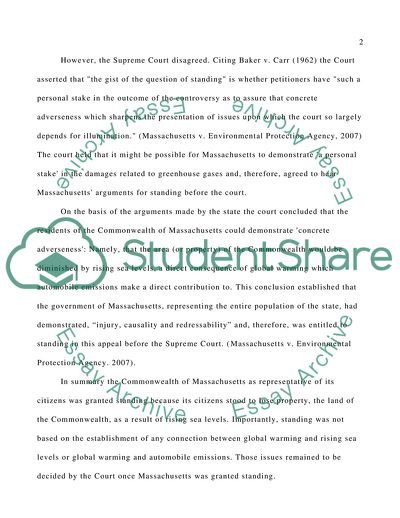Cite this document
(The Supreme Court - Standing and the Impact of Massachusetts v Case Study, n.d.)
The Supreme Court - Standing and the Impact of Massachusetts v Case Study. https://studentshare.org/law/1745040-week-7-essay
The Supreme Court - Standing and the Impact of Massachusetts v Case Study. https://studentshare.org/law/1745040-week-7-essay
(The Supreme Court - Standing and the Impact of Massachusetts V Case Study)
The Supreme Court - Standing and the Impact of Massachusetts V Case Study. https://studentshare.org/law/1745040-week-7-essay.
The Supreme Court - Standing and the Impact of Massachusetts V Case Study. https://studentshare.org/law/1745040-week-7-essay.
“The Supreme Court - Standing and the Impact of Massachusetts V Case Study”. https://studentshare.org/law/1745040-week-7-essay.


